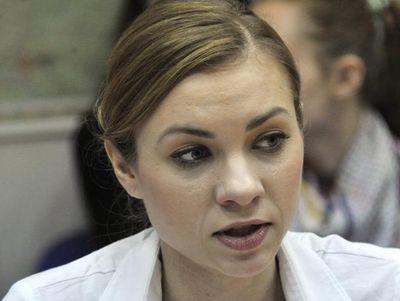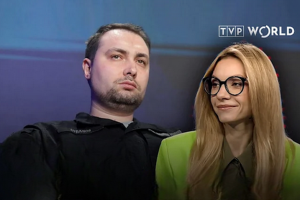Visa-free: the last political obstacles removed

Maria Zolkina,
political analyst, Democratic Initiatives Foundation
The first and most important – the last political obstacles to the implementation of a visa-free regime for Ukraine and Georgia – have been removed. Though the mechanism of suspending the effect of the visa-free regime is an issue of procedure and the division of rights and powers between different institutions of the EU, as well as national governments, it was totally and fully political.
First of all, the fact itself that the clinches in the implementation of a visa-free regime for Ukraine and Georgia up to the final approval of the mechanism of its suspension (for all countries in general) was already an additional condition that arose after Georgia and Ukraine fulfilled its “homework” according to the plan of action of visa liberalization. Secondly and subsequently, attempts to delay adoption of the decision about suspension mechanism were by the same token mainly for political reasons in order to preserve the formal argument to not open a visa-free regime for new countries at this moment in time. The recent attempts of France to put this issue on the backburner until the end of the presidential election campaign in the country were testimony to this. Precisely for this reason the last political obstacles disappeared when a compromise was reached regarding the mechanism of suspending the effect of the visa-free regime. And this has the most important meaning for those on the list of expectations – first and foremost Tbilisi and Kyiv.
At the moment the question “So, what’s next?” truly comes down to procedural issues: voting in the European Parliament (which is more realistic in mid-January 2017) and later approval of the decision of the Council of the EU. Accordingly, the procedural processes in the period January-February 2017 and the implementation of the visa-free regime can be expected at some point in March.
How exactly the renewed mechanism of suspension (the current procedure was approved in 2013) will work prior to the text of the compromise being made officially public can only be spoken of in the light of its general features. The overall logic lies in two main aspects. The first is the simplification of the suspension procedures. The period of review of the initiatives on suspension will be reduced from six months to two, while the criteria through which this mechanism of suspension can be applied is on the contrary being expanded and will include not only the issue of the direction of migration policy and the free movement of people in general, but also with foreign policy problems should it pose a threat to EU member countries. What these security or political criteria will be without the document being made public is at the moment impossible to say.
The second aspect is the introduction of permanent monitoring on the part of the EU of whether or not a country that enjoys a visa liberalization regime will continue to meet those criteria that allowed the EU to introduce this visa-free regime. And precisely this innovation is ambiguous. On the one hand, “external control” (in the form of annual reports of the European Commission) could be effective in order not to prevent any rollback in achievements after a country is being granted a visa-free regime. For Ukraine, for example, this could be a pillow of security for its anti-corruption policy. In practice, the reality in Ukraine is that there might be limitation of powers of the Anti-corruption Bureau or changes to anti-corruption legislation and so on, for instance. In short, there is a real risk, that after achievement of the goal of a visa-free regime there will be attempts to level the results of execution of the plan of action through visa liberalization. At the same time, this coin has another side to it – namely, the politicization of claims to a country that enjoys a visa-free regime. And in the event that a political goal to limit the free movement of people from a certain country emerges, there will always be claims to the procedure of introduction of a number of standards – for example that very same fight against corruption. This issue will become clearer at some point in the future, but given the strengthening of attempts to block the decision at the EU level for the narrow national reasons of member countries, the possibility of such risks should not be discarded.
What is important is that a conflict and confrontation between national and supra-national levels of power in the EU were avoided. Both EU member countries and the European Commission will have the right to initiate the procedure of suspension. In this way a procedural problem was resolved: bodies of power of the EU could not agree with national governments on who will have more powers in the process of suspending the effect of a visa-free regime.
A political compromise was reached: with a simple majority of member states (i.e. the European Commission alone) the need to suspend the effect of a visa-free regime can be initiated. The European Commission can approve the decision for the support of such voting of EU member countries and suspend the effect of visa liberalization for nine months, but a certain category of the people in those countries became the target of the application of this procedure. If the reasons for which the mechanism of suspension was applied over this period of partial “freezing” remain intact, the European Commission extends the term to 18 months for all citizens of the corresponding third country. It is highly probable that the European Parliament supported the norm of application of this mechanism from the start only for certain groups of citizens of problem countries.
However, in the entire long-drawn process of the completion of the visa-free political epic there is one extremely important moment: EU member countries were forced to cede their national political arguments. It was precisely this that undermined the work of the EU seeing as at the moment there are no obstacles whatsoever to granting Ukraine and Georgia a visa-free regime. And any delays over the past months were strictly for political reasons. Logically, the EU appeared to be an unreliable partner that should have in this case put up certain demands from third countries. In truth, Ukrainians will clearly not feel “the value-added” neither from this compromise, nor the future news about the opening of EU borders. The issue of a visa-free regime became a theme of speculation and unfulfilled promises, which is why a part of Ukrainian society can inherently appreciate the implementation of a visa liberalization, but at some point it will become impossible to achieve a certain positive wave of information as this path to a visa-free regime has been replete with far too many problems and obstacles.








